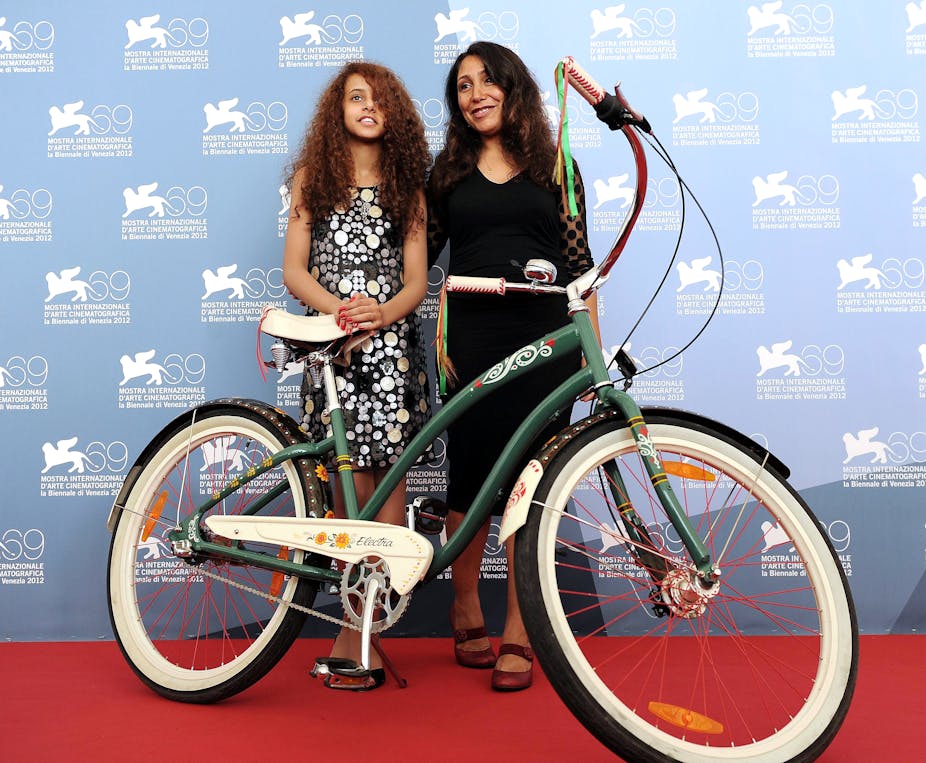The Oscars aftermath has begun to die down for another year, and stars are perhaps now starting to get over their hangovers. The racial diversity of this year’s awards has been widely championed, but we seem to have forgotten a little about the niggling question of gender.
Another year, another Oscar line-up and no woman nominated for Best Director. The Academy may have plumped for a female host this time (Ellen De Generes), the female-led spectacular Gravity may have won a host of awards, and the Best Animated Feature may have been the female-codirected Frozen, but the directorial category is an all-male show.
Looking back over the years, that’s overwhelmingly been the case. It’s a shock to find that even now only four women have ever been nominated for the Best Director award during its 85 year history: Lina Wertmuller in 1976, Jane Campion in 1993, Sofia Coppola in 2003 and Kathryn Bigelow in 2009, the latter becoming the first and so far the only woman director to win the award. That may have been excusable back in the days when there was a sole female member of the Directors Guild of America (first Dorothy Arzner then Ida Lupino) but that situation is no longer the case.
While women are certainly still in the minority as directors and a long way from gaining gender parity, they have made significant gains over recent decades that have not been matched with equivalent award success. It’s simply not true that the 2014 Academy Awards are merely reflecting the absence of any exciting female filmmaking talent out there. Quite the reverse.
One of the shock omissions from the Foreign Language Film category this year was Haifaa Al-Mansour’s bittersweet and touching tale of Saudi Arabian girlhood Wadjda, a film whose accomplishment is all the more remarkable when one learns that Al-Mansour had to direct it clandestinely from inside a van.
And why was there no nod for Kelly Marcel in the screenwriting category for her sparkling script for Saving Mr Banks? Why no inclusion of Mira Nair or Sofia Coppola or Lynn Shelton or Nicole Holofcener or Kimberly Peirce or Kasi Lemmons? To paraphrase another Oscar, Mr Wilde, to neglect one female director may be a misfortune, but to neglect eight or nine looks like carelessness.
It doesn’t give you great confidence in the gender politics of the Oscars when you read that an offer of free vaginal rejuvenation surgery is one of the “treats” in the ceremony’s goodie bag.
Stepping aside from the US and the admittedly artificial arena of the Oscars, does the picture seem any brighter for women directors in Britain? Perhaps. There’s certainly no lack of directorial talent. Andrea Arnold, herself an Oscar winner for her short film Wasp (2003), followed her contemporary dramas Red Road (2006) and Fish Tank (2009) with a uniquely brutal and bruising take on Emily Bronte’s Wuthering Heights in 2011.
Amma Asante has taken a similar path to Arnold, albeit over a more elongated timescale, finally following up her social realist debut A Way of Life (2004) with a period drama, Belle (2013). Both Clio Barnard and Carol Morley are transplanting their innovative approaches to documentary into their fictional feature debuts, 2013’s The Selfish Giant and The Falling, due out later this year. Meanwhile Joanna Hogg is emerging as a kind of British equivalent of Eric Rohmer, chronicling the foibles of the upper middle classes in Unrelated (2007), Archipelago (2010) and her forthcoming Exhibition (2013).
And, as has been noted in a recent BFI report, it’s not the case that British women filmmakers are confined to an art-house or avant-garde ghetto in terms of the kind of projects they work on. Some of the biggest British hits of recent years have been from female directors, among them Mamma Mia!: The Movie (2008) and The Iron Lady (2011), directed by Phyllida Lloyd, the Nativity comedies written and directed by Debbie Isitt, and the StreetDance films co-directed by Dania Pasquini.
In many respects, the position of women directors in the British film industry has never been healthier. But the long gap between Amma Asante’s first and second film and the problems encountered by Lynne Ramsay, the acclaimed director of We Need to Talk about Kevin (2011), in being bumped first from The Lovely Bones and then from Jane Got a Gun point to a deeper possible malaise facing the female filmmaker.
If making a debut film is hard, then sustaining a career seems even harder. It’s very important to celebrate the advance of the woman director in contemporary cinema and the success of individual films authored by women. However, it’s equally crucial to ensure that funding structures, festival and critical acclaim, and widespread distribution of a range of women’s films all play a role in supporting and sustaining this exciting new development towards a less gender-biased cinema.

